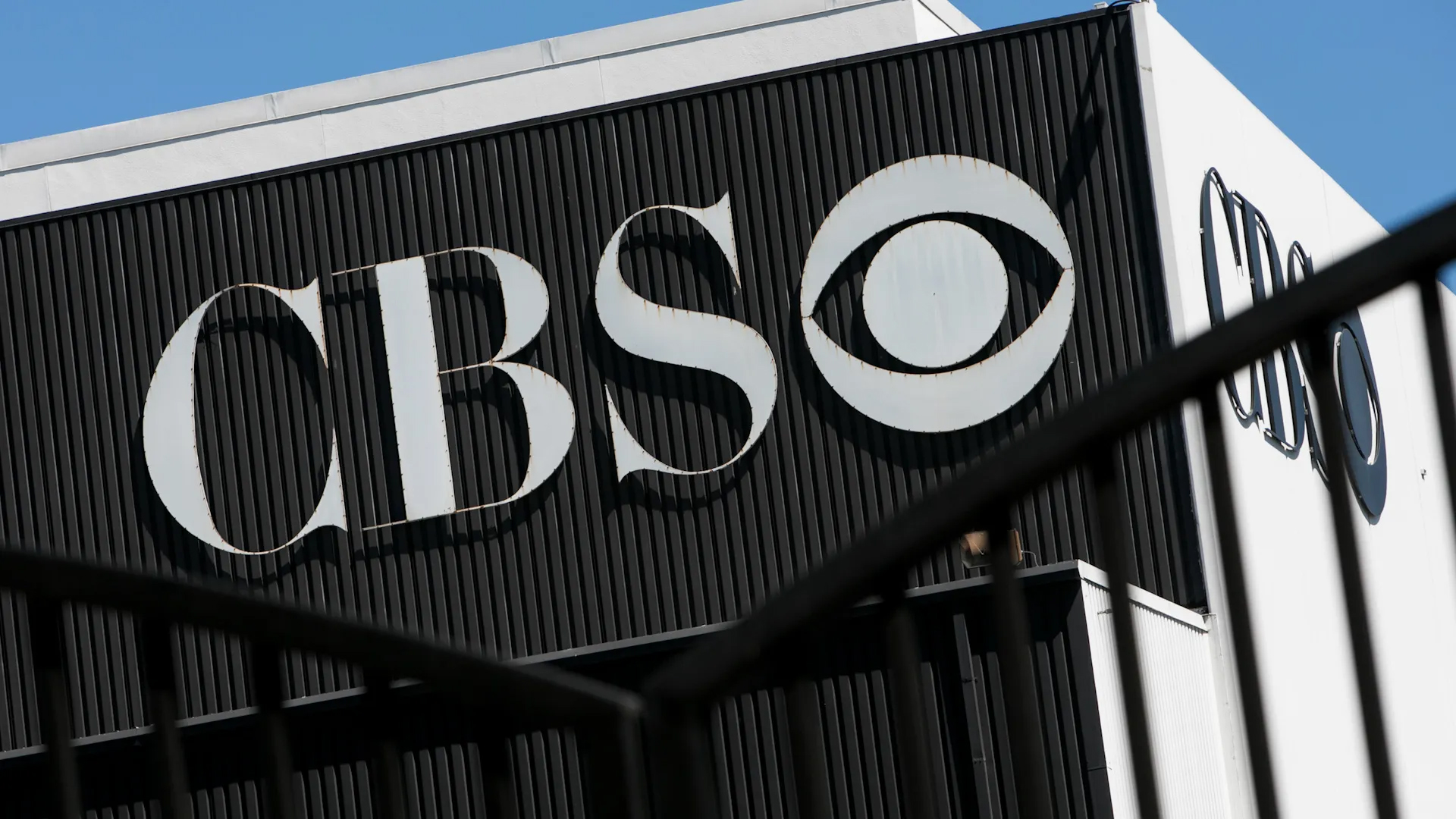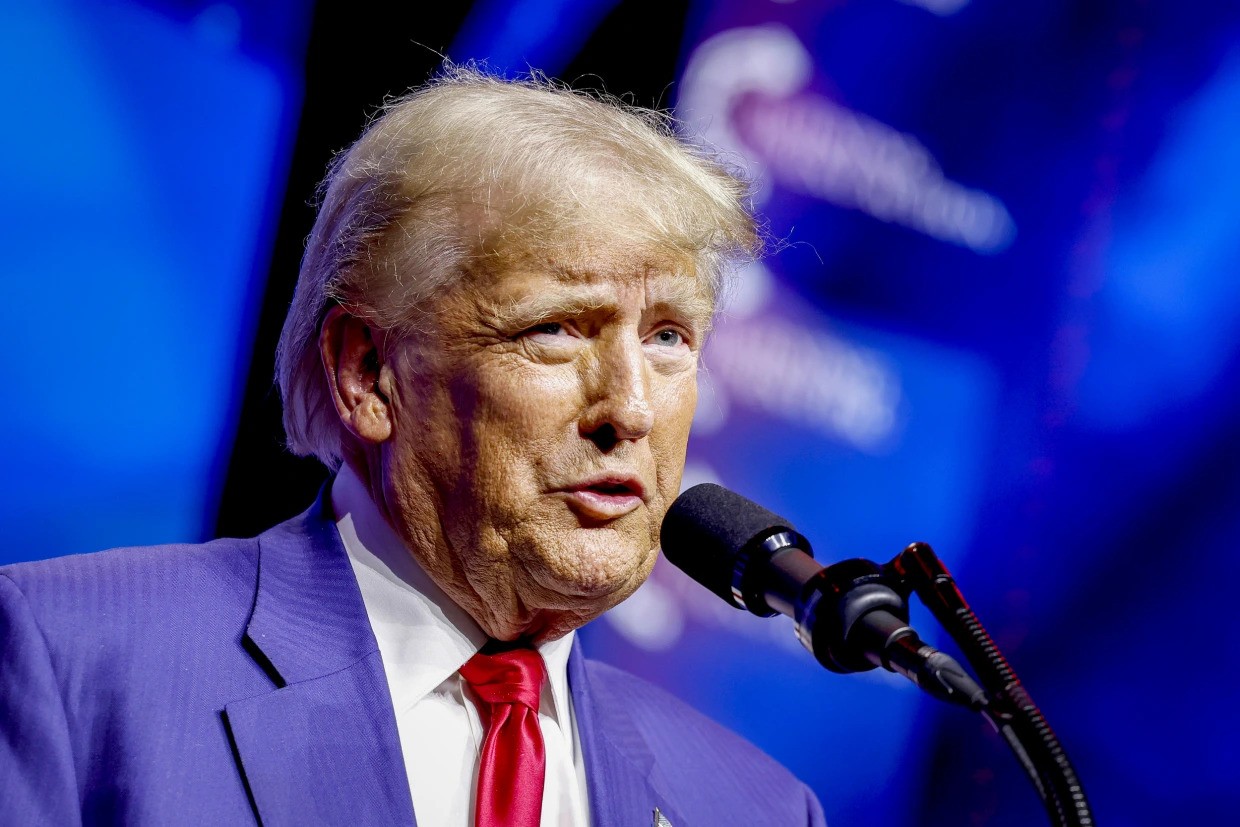Former President Donald Trump is making headlines again, this time launching a staggering $10 billion lawsuit against CBS News. The case centers on claims of “deceptive conduct” allegedly intended to interfere with the upcoming presidential election through edited footage of Vice President Kamala Harris.
Trump’s legal team contends, “CBS’ partisan and unlawful acts of election and voter interference through malicious, deceptive, and substantial news distortion calculated to confuse, deceive, and mislead the public.” The lawyers allege these actions were part of a deliberate attempt to “tip the scales in favor of the Democratic Party” as the 2024 race reaches its climax.
Mounting Pressure and Past Controversies

CBS News, already under intense scrutiny, finds itself in deeper trouble. The network has faced backlash over controversies, including a heated ‘CBS Mornings’ interview about Israel and the criticized editing of Vice President Harris’ responses on ‘60 Minutes.’
“President Trump brings this action to redress the immense harm caused to him, to his campaign, and to tens of millions of citizens in Texas and across America by CBS’s deceptive broadcasting conduct,” states the lawsuit. Trump’s legal team has accused the network of manipulating information, leaving viewers with a misleading narrative.
Trump Demands Full Disclosure
The saga intensified when Trump’s attorneys sent CBS News letters demanding the release of the full transcript of Harris’ interview. They pointed out inconsistencies in two aired versions of Harris’ response to a critical question. Despite requests to preserve all related documents for a potential legal fight, CBS News has stood its ground, invoking the First Amendment.
The network maintains, “The interview was not doctored” and defends its decision, asserting that the program “did not hide any part of the vice president’s answer to the question at issue.” However, critics remain skeptical, questioning the integrity of the editing process.
The Key Exchange in Question

The lawsuit zeroes in on Harris’ conversation with ‘60 Minutes’ correspondent Bill Whitaker. During a preview clip on ‘Face the Nation,’ Harris was asked why it appeared that Israeli Prime Minister Benjamin Netanyahu wasn’t heeding U.S. directives.
“Well, Bill, the work that we have done has resulted in a number of movements in that region by Israel that were very much prompted by, or a result of, many things, including our advocacy for what needs to happen in the region,” Harris stated in the preview clip. Conservatives quickly mocked her for what they described as a confusing “word salad.”
However, the version aired in a primetime special was noticeably altered, showcasing a more coherent and polished response.
“We are not going to stop pursuing what is necessary for the United States to be clear about where we stand on the need for this war to end,” Harris said.
Critics Demand Transparency
Public outrage has only grown, with mounting calls for CBS to release the unedited transcript. Critics argue the editing was intended to paint Harris in a more favorable light, at the expense of journalistic integrity. As the lawsuit bluntly puts it, “To paper over Kamala’s ‘word salad’ weakness, CBS used its national platform on 60 Minutes to cross the line from the exercise of judgment in reporting to deceitful, deceptive manipulation of news.”
Trump’s legal team further argues that news outlets have a responsibility to present the truth without skewing it. They contend that altering the narrative undermines public trust and gives a false impression of the vice president’s capabilities.
Legal Action and High Stakes
The lawsuit seeks not only $10 billion in damages but also a jury trial. It outlines CBS’ alleged “ongoing false, misleading, and deceptive acts” and asks the court to impose other just and necessary relief. “Due to CBS’ actions, the public could not distinguish which Kamala they saw in the Interview: the candidate or the actual puppet of a behind-the-scenes editor,” the filing claims. Whitaker’s question about U.S. foreign policy during the Israel-Gaza conflict, posed mere weeks before the crucial election, remains at the heart of the matter.
As the legal battle unfolds, the stakes are higher than ever, with implications that could reverberate far beyond the upcoming election.



